Possible outcomes of European Parliament elections and their implications for Ukraine
 Ursula von der Leyen, Charles Michel and Roberta Metsola (collage by RBC-Ukraine)
Ursula von der Leyen, Charles Michel and Roberta Metsola (collage by RBC-Ukraine)
Today, elections to the European Parliament (EP) started across the EU and will last until June 9. RBC-Ukraine's article explains why these elections have caused fears among European elites, what the new convocation of the EP and the EU leadership will look like, and why European elections are important for Ukraine.
Contents
- What new composition of European Parliament could look like
- Why EU fears rise of far-right
- Will Ursula von der Leyen remain President of European Commission
- Elections to European Parliament and Ukraine
- After elections
The June vote will determine not only the composition of the European Parliament for the next 5 years. Still, it will also affect the reformatting of the European Commission, the key body of the European Union.
The EU leadership may be significantly renewed, which means that some European functionaries familiar with Ukrainians may leave the stage, and new faces with new approaches to Ukraine and Russia's war against Ukraine will gain more influence in Brussels.
What new composition of European Parliament could look like
Seven pan-European factions will compete for 720 seats in the European Parliament: European People's Party (EPP), Progressive Alliance of Socialists and Democrats (S&D), Renew Europe, Greens/European Free Alliance (Greens-EFA), European Conservatives and Reformists (ECR), Identity and Democracy, and the European United Left (GUE/NGL).
According to Politico's analytical forecasts, the European People's Party (which includes, for example, Polish Prime Minister Donald Tusk), which currently has 177 MPs, will retain its primacy in the European Parliament, albeit with fewer seats. This year, analysts predict that the EPP may win 172 seats.
The second largest faction, the Progressive Alliance of Socialists and Democrats (S&D) will retain almost all of its seats in the European Parliament. German Chancellor Olaf Scholz is among the camp's leaders. The S&D is expected to have only one less seat in the new convocation—143.
The forecasts for Renew Europe (which includes, for example, French President Emmanuel Macron's party) and the Greens-EFA are not as optimistic. According to the results of this year's elections, they may lose up to a third of their seats in the European Parliament. According to Politico's forecast, Renew Europe, which currently has 101 MPs, may be left with only 75, and the Greens-EFA may see its number of seats drop from 101 to 73.
The right-wing faction of the European Conservatives and Reformists, which currently has 64 seats, is projected to grow by 11 deputies. The far-right Identity and Democracy faction is also expected to grow slightly. According to Politico, the number of its members will increase from 64 to 68. Back in May, the predicted number of seats for the IS in the European Parliament exceeded 80, but after the German Alternative for Germany was expelled from the faction, the situation changed significantly.
The left-wing radicals will also receive fewer seats in the new convocation of the European Parliament. The number of deputies of the European United Left faction is expected to decrease from 39 to 31.
Also, 59 independent MPs may be elected to the new European Parliament convocation, 42 more than today.
However, these forecasts are only approximate, as there will be about 56 more MPs who can then join one of the factions or remain independent.
Why EU fears rise of far-right
At the end of last year, Chief European diplomat Josep Borrell said that European elections would be as dangerous as the US election. He was referring to opinion polls that showed an unprecedented rise in the popularity of far-right parties across Europe.
Therefore, if they were successful in the elections, European right-wing radicals could, for the first time, gain real influence on politics throughout the European Union. And they would significantly exacerbate the contradictions within the EU itself on a huge number of issues: from the environment and migration to support for Ukraine (after all, the number of Ukraine-skeptical or even openly pro-Russian parties is the largest among the far right).
These fears were not largely justified—the European trend of increasing the popularity of the far right was not as sustainable as expected. In particular, it seems that the heyday of one of the most powerful right-wing radical forces on the continent, the German Alternative, has already passed.
However, the most interesting processes are currently taking place on the right flank of European politics. Under certain conditions, the three right-wing groups of the European Parliament—the moderate European People's Party, the radical European Conservatives and Reformists, and the far-right Identity and Democracy—could jointly gain an arithmetic majority in the new EP convocation.
However, such a right-wing alliance is unlikely to be functional, as there are traditionally too many differences between its members. For example, Ursula von der Leyen has publicly outlined the principles of possible cooperation with any European parties: they must be pro-European, pro-Ukrainian, anti-Putin, and support the rule of law. Many right-wing radicals will not pass through such a sieve a priori.
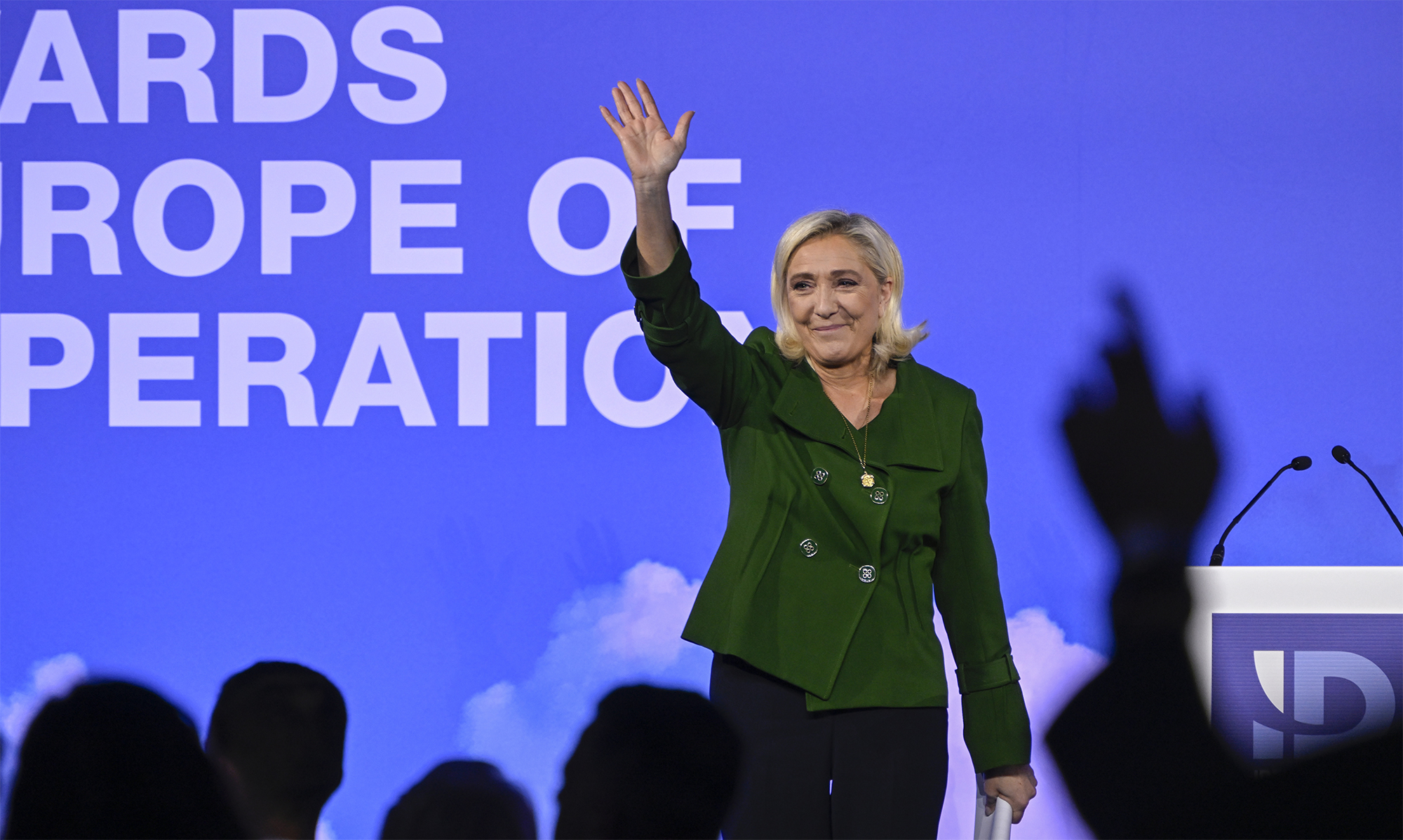 Marine Le Pen wants to create her right-wing faction in the European Parliament (Photo: Getty Images)
Marine Le Pen wants to create her right-wing faction in the European Parliament (Photo: Getty Images)
Not to mention the fact that any alliance of ultranationalists from different countries (gathered primarily in the ranks of Identity and Democracy) is fragile by definition: the far right is much more focused on the interests of their own country (as they understand them) than on their ideological obligations to foreign colleagues.
Nevertheless, within the right-wing camp, there is an extremely active political courtship, at the epicenter of which is Italian Prime Minister Giorgia Meloni, who wants to be drawn into her camp by both the conservative von der Leyen (more on this below) and the French right-wing radical Marine Le Pen, who is dreaming up the idea of a far-right mega-faction in the European Parliament. At the same time, Le Pen herself is trying to appeal to more moderate voters - in fact, it was she who was able to survive the German Alternative, which was toxic even for her, from her parliamentary group.
Will Ursula von der Leyen remain President of European Commission
One of the first tasks of the new European Parliament will be to elect a new President of the European Commission.
The European People's Party is expected to propose to re-elect the current President, Ursula von der Leyen, who is eager to remain at the head of the European Commission for another five-year term.
Today, however, it is quite possible that von der Leyen's plan will fail, as she faces two obstacles on her way to a new five-year term. The first is the lack of votes in the new European Parliament.
To be re-elected, the incumbent European Commission President needs at least 361 votes out of 720 members of the new European Parliament. In 2019, von der Leyen was re-elected with only 9 votes more than the minimum threshold. This year, it will be more difficult for her to get at least the minimum number of votes.
Theoretically, if the European People's Party forms a coalition with Renew Europe and S&D, their total number of votes will be 390, which is 29 votes more than the minimum threshold. However, not everything is as simple as it may seem. The fact is that among these three factions, including the EPP, there is a significant number of opponents of von der Leyen, which is a serious threat to her re-election.
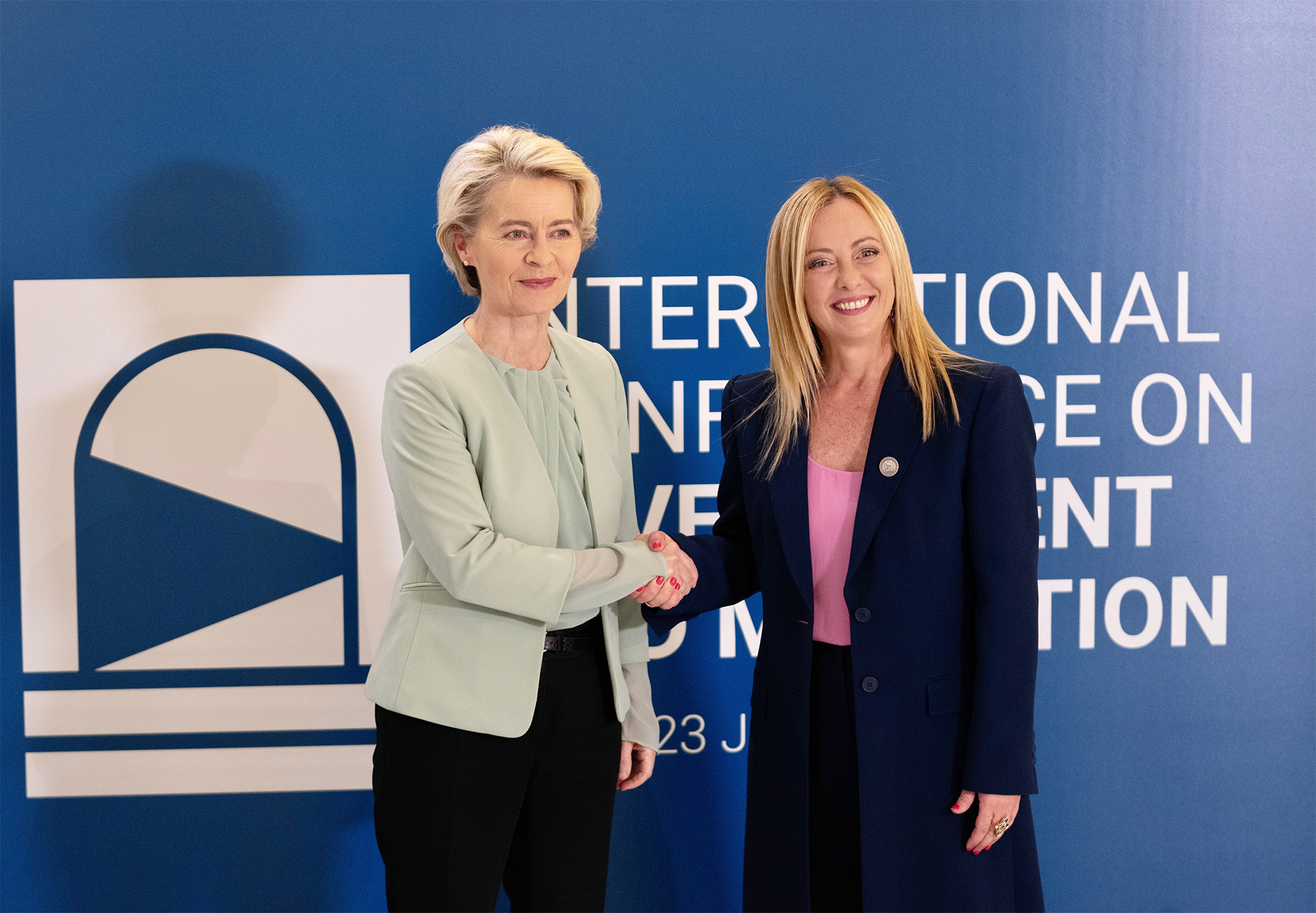 Ursula von der Leyen may receive the support of Giorgia Meloni (Photo: Getty Images)
Ursula von der Leyen may receive the support of Giorgia Meloni (Photo: Getty Images)
According to Politico, in a possible EPP/Renew Europe/S&D coalition, von der Leyen loses about 10% of the vote, which brings her total support by these three parties to 351, 10 votes short of the required minimum. However, according to more pessimistic estimates, the percentage of opponents of von der Leyen will be more than 10%, even within the EPP, as in previous votes, opponents of the party line gained from 13 to 28% of the vote.
Therefore, von der Leyen will likely have to seek support from other factions. In the 2019 elections, she received many votes from the Fides party, Hungarian Prime Minister Viktor Orban, and Poland's PiS. However, today she is unlikely to gain the support of these two parties, given her continued criticism of them.
Recently, von der Leyen has been trying to flirt with Giorgia Meloni, whose far-right Brothers of Italy party could win 23 seats for the ECR faction in the European Parliament. But such an alliance, according to Politico, could cost the support of S&D, Renew, and the Greens, who have already said they will not support von der Leyen's re-election if she makes any deal with Meloni's far-right allies in the European Parliament.
If Von der Leyen refuses to move closer to the ECR, then in addition to the votes of S&D and Renew, she will have to seek support from the Green faction, which has not supported her systematically since 2019. With the support of the Greens, von der Leyen could receive 432 votes, which would be more than enough to be re-elected for more than one term.
The Greens themselves do not rule out that they may support von der Leyen in exchange for many demands, including the return of the Green Deal to the EU agenda. But this, in turn, could hit the support of the Conservatives, who have recently been actively opposing the Green Deal policy in the EU.
Therefore, it will not be easy for the current President of the European Commission to find votes for re-election, but she will have time to secure sufficient support, as the new European Parliament is expected to vote on this issue in late July, more than a month after the elections.
 Charles Michel may pose obstacles for von der Leyen (Photo: Getty Images)
Charles Michel may pose obstacles for von der Leyen (Photo: Getty Images)
But before the vote in the European Parliament, von der Leyen will still have to get approval from the European Council, that is, all 27 EU leaders. At this stage, the President of the European Council, Charles Michel, who, according to Politico insiders, has a grudge against von der Leyen and his ambitions, may become an obstacle for her.
There are rumors in Brussels that Michel is applying for the post of head of European diplomacy, and also Vice President of the European Commission. He is seeking a new high position in the EU because he will not be able to be re-elected for another presidential term after his term expires in early December.
To realize his plan, Michel may try to prevent von der Leyen from gaining support in the European Council to negotiate a position with another possible head of the European Commission. However, according to diplomats in the EU, it is very unlikely that he will be able to achieve his goal, as the 27 EU leaders will try to bypass Michel as much as possible when discussing the candidate for the post of head of the European Commission.
Von der Leyen is also favored by the fact that there is no comparable candidate for the post of European Commissioner on the European stage. Probably, the only real competitor to her is the chairman of the German Bundestag Defense Committee, Marie-Agnes Strak-Zimmermann, who represents Renew Europe. By the way, she could be an even better candidate for Ukraine than von der Leyen - Strak-Zimmermann is probably the most radical supporter of assistance to Ukraine among all German politicians.
But for now, von der Leyen's chances for a second term as European Commission President still seem to be more favorable. Although the voting in the European Parliament will be held in secret, which a priori increases the likelihood of surprises and unexpected backroom deals.
European Parliament elections and Ukraine
Although it may seem that the European Parliament elections are only about the EU, they are also important for Ukraine. Along with the European Parliament, other institutions, including the European Commission, are being rebooted.
"How we move forward and how our integration will work will depend on who the new members of the European Commission's board will be. Although the position of the member states sitting in the Council of the European Union also plays a big role here,” Hennadiy Maksak, Foreign Policy Council "Ukrainian Prism" Executive Director, tells RBC-Ukraine.
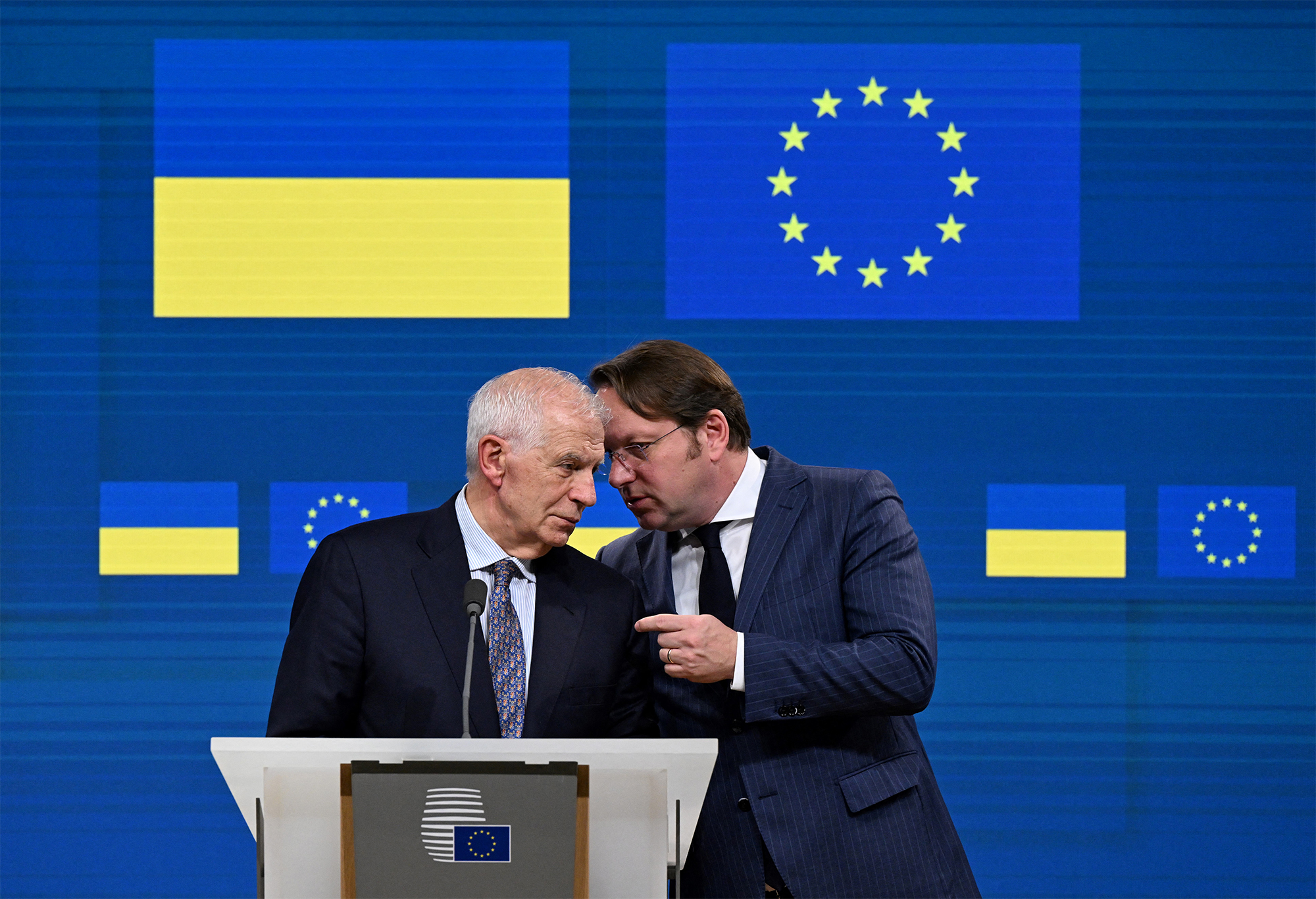 EU Diplomacy Chief Josep Borrell and European Commissioner for Enlargement Oliver Varhelyi (Photo: Getty Images)
EU Diplomacy Chief Josep Borrell and European Commissioner for Enlargement Oliver Varhelyi (Photo: Getty Images)
According to him, the organization and handling of Ukrainian issues by the European Parliament's committees are fundamentally important for Ukraine. This concern not only European integration but also financial support, sanctions, etc.
"But on the other hand, who holds the portfolio of the European Commissioner for Enlargement is also important. As we know, the previous Hungarian representative did not play the best role here to adequately represent Ukrainian interests or, let's say, not to block them, so this is also important,” Maksak adds.
At the end of May, there were rumors in the EU that Austria was applying for the post of European Commissioner for Neighborhood and Enlargement. For this position, Vienna may propose Karoline Edtstadler, who is currently the Minister for EU and Constitutional Affairs in the Austrian government. It was she who promised to arrest Vladimir Putin if he came to Austria.
But despite this position, the Austrian representative's tenure as European Commissioner for Enlargement may pose certain risks to Ukraine's path to the EU.
The reason for this is Vienna's special position on accelerating the European integration of the Western Balkans, which, on the other hand, could slow down the path of Ukraine and Moldova if it were faster.
Edtstadler is not the only potential candidate for the enlargement post. This position may also be offered to friends of Ukraine, such as the current Latvian European Commissioner for Trade Valdis Dombrovskis or Lithuanian Foreign Minister Gabrielius Landsbergis.
Another key portfolio for Ukraine will be the newly created position of European Commissioner for Defense. The most likely candidate for this portfolio in the EU is the current Polish Foreign Minister, Radoslaw Sikorski. However, Czechia, Finland, and Greece were also interested in this position in the European Commission.
As for the position of the chief diplomat - the EU High Representative for Foreign Affairs and Security Policy - the current Estonian Prime Minister Kaja Kallas, one of Ukraine's biggest supporters in the European Union, may replace Josep Borrell. However, his replacement will first have to be approved by the European Council.
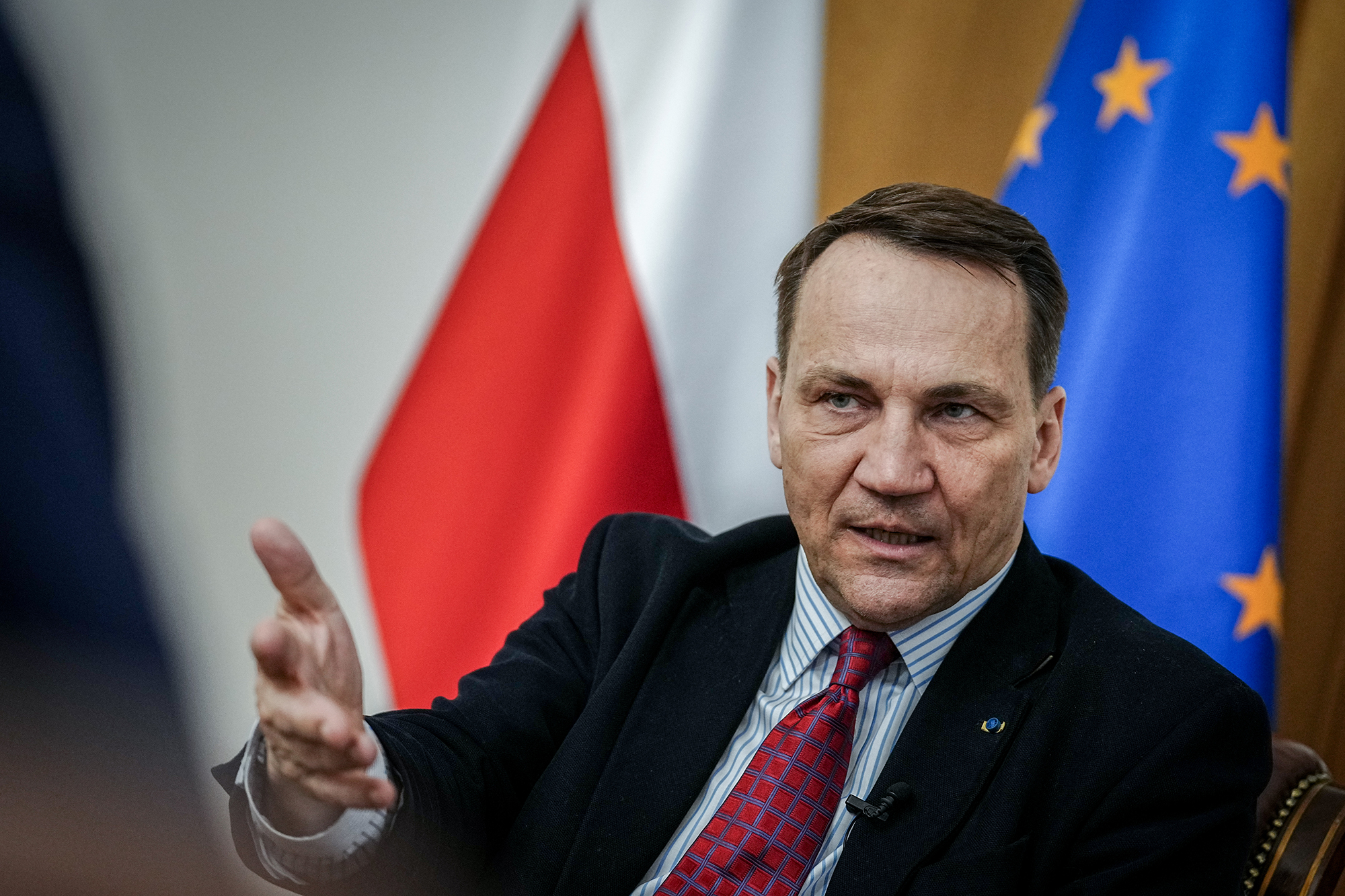 Radoslaw Sikorski is running for the post of European Commissioner for Defense (Photo: Getty Images)
Radoslaw Sikorski is running for the post of European Commissioner for Defense (Photo: Getty Images)
But in the end, the President of the European Commission will decide which of the 27 EU countries will receive a particular portfolio. And then the European Parliament will have to approve the new composition of European Commissioners. If MEPs do not like any candidates, countries will have to propose another candidate.
In general, according to Maksak, this year's European Parliament elections are more or less predictable, and although there will be an expansion of the far-right wing, the new convocation will still have a pro-European, pro-Ukrainian coalition.
"The three principles that will form the basis of the coalition were voiced by Ursula von der Leyen: to be pro-European, to be pro-Ukrainian, and to respect the rule of law. These principles indicate that if such a coalition is created, we will find understanding, I will not say that it will be concessions, but there will be understanding of the process taking place in Ukraine, how we are moving towards European integration,” he tells RBC-Ukraine.
After elections
The very next day after the elections are over (June 10), the EU will begin a heated political process related to the formation of a new parliament, the election of the chairman, and the new composition of the European Commission.
In the first few weeks after the elections, European parties will be busy negotiating and concluding agreements on the formation of factions in the new European Parliament. On June 17, an informal summit will be held in Brussels to discuss candidates for the post of European Commission President. However, the official decision of the EU leaders on the candidate is expected at the end of the month, during the EU Council summit on June 27-28.
EU countries hope to reach an agreement on the top posts by then, but European leaders will likely want clarity on whether von der Leyen will be able to gain sufficient support in the European Parliament.
The summit will also see the signing of the Strategic Agenda, a document agreed upon every five years by EU leaders to set out the bloc's goals for the future European Commission.
The new European Parliament will begin its work on July 16. Its priority will be electing its new President. The current president, Roberta Metsola, is expected to be re-elected for a new 2.5-year term, and in 2026, she will be replaced by a representative of the Socialists as part of an agreement between the EPP and S&D.
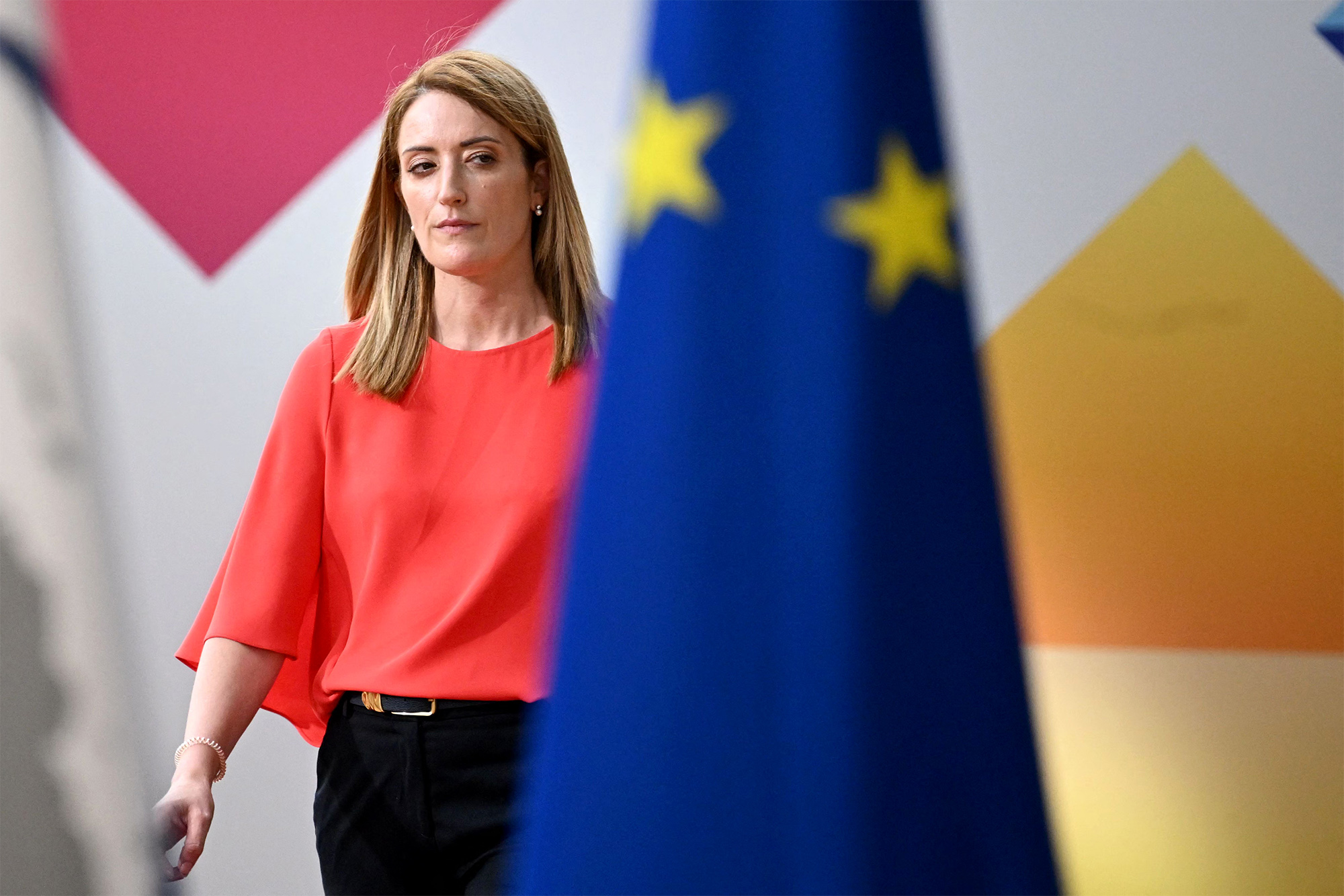 Roberta Metsola may receive a new term as president of the European Parliament (Photo: Getty Images)
Roberta Metsola may receive a new term as president of the European Parliament (Photo: Getty Images)
After that, the European Parliament will have to schedule a vote to approve the candidacy of the European Commission President proposed by the European Council. It is not yet known when this vote will take place, but the Greens, S&D, and Renew Europe want it to be held at the plenary in July without waiting for the next session in September so that the right-wing will not have time to claw at von der Leyen. The EPP wanted to hold a vote in September earlier, but it seems to have abandoned this demand.
If the European Parliament fails to approve the candidate proposed by the EU leaders in this vote, the European Council will have one more month to put forward an alternative. But such a development would be an unprecedented political crisis for the EU.
After the appointment, the President of the European Commission will begin the process of distributing the portfolios of the European Commissioners. Last time, von der Leyen asked each country to nominate two candidates - a man and a woman. Therefore, if she is re-elected, this process may be repeated.
When the new president forms a new composition of the European Commission's board, it will have to be approved by the European Parliament. Each proposed commissioner will be reviewed by MEPs who use this process for political purposes.
As a rule, the European Parliament weeds out at least one candidate for European Commissioner. Last time, three candidates were not approved, but this year, it is expected that the review in the European Parliament will be even more rigorous. The new composition of the European Commission College will likely be approved by the European Parliament in November.
The final stage in the formation of the new EU executive will be the election of a new President of the European Council on December 1, the day when Charles Michel's term of office expires. His successor will be elected exclusively by EU leaders - the European Parliament will not be involved in the process, at least formally. Although, of course, the presidency of the European Council will figure in various political agreements that will be formed after the election.
Sources: Politico, Tagesspiegel, The New York Times, statements of European politicians, and comments by Hennadiy Maksak, Foreign Policy Council "Ukrainian Prism" Executive Director.

